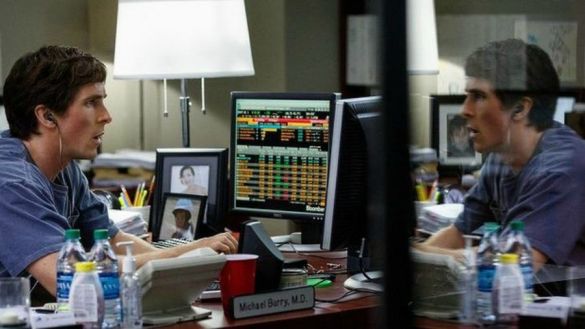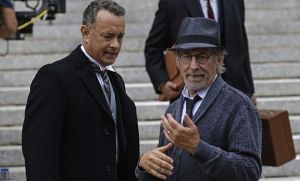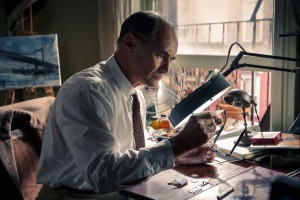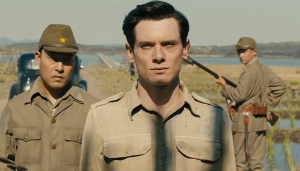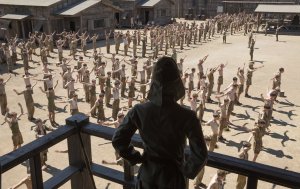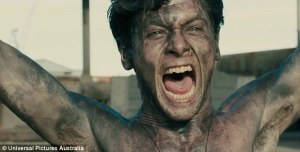Up next on our look at the Best Picture films is The Revenant. Directed by reigning Best Director winner Alejandro G Iñarittu, and starring Leonardo DiCaprio, Tom Hardy, and Domhnall Gleeson, it is rated R for violence including gory images, a sexual assault, language and brief nudity.
From IMDB: After an attack that occurred in a fur trappers bivouac, across a river, in American wilderness, Hugh Glass (DiCaprio), his son, and his remaining companions, are going back to the nearest outpost. Glass is left in weak condition after being mauled by a bear forcing some men from the team to be his caretakers. One of the caretakers, John Fitzgerald (Hardy), chooses to betray Glass, and leave him to die. Relying on his insurmountable anger and powerful motivation for his family, Hugh survives and attempts to find John Fitzgerald, and make him pay for his terrible decision.
9 out of 10
If Leo does not finally seize that oh-so-elusive Best Actor trophy, I will protest. I will write several strongly worded letters to the Academy. I will make a thousand picket signs and with Leo’s thousand biggest fans, march through Los Angeles, pitchforks in hand. If it wasn’t clear before, If Leonardo DiCaprio does not win Best Actor for his turn as legendary frontiersman Hugh Glass, I will have lost all hope in humanity.
As it stands, I would probably put The Revenant as my third favorite film from the past year (after Star Wars and Spotlight), though there’s no doubt that it was the most intriguing. The premise is perfectly concocted, showing off the perfect mix of revenge, love, and spiritualism. The ensemble cast is spectacular, from the experienced DiCaprio to the younger Will Poulter, previously of We’re the Millers fame. The production design and costumes are spot on, providing this world with realism… albeit a grotesque one.

The Revenant starts out with an emphatic bang, a battle scene with thrashing, nauseating violence— think Saving Private Ryan, only 150 years prior and with Native Americans and pioneers rather than soldiers and Nazis. The opening scene of the 1998 classic is known for its shockingly violent nature, highlighted by stray body parts and gushing intestines; The opening battle of The Revenant is almost on par. However that violence does not hinder; rather it helps in establishing the setting of the film in a place of conflict and disarray.
One of the stars of that battle is of course, Hugh Glass, who is, in the only way I can appropriately put it, an absolutely savage. Obviously this intensity has to be attributed to DiCaprio, who plays Glass with a determination and motivation that makes him a force of nature. From gutting a horse to use its carcass for warmth to eating raw buffalo liver (Leo actually did this! And he’s a vegetarian!), Glass goes to the most extreme lengths to stay alive— something that is evident through DiCaprio’s commitment to the character. He is the shining star of the movie, absolutely controlling the big screen for the entirety of the two and a half hours.
He is of course supported by Tom Hardy and Domhnall Gleeson, the former snagging a Best Supporting Oscar nomination for his extraordinary efforts as the selfish, ruthless Fitzgerald. Gleeson is spectacular in the role of Andrew Henry, captain of the party, following up his solid performance in Star Wars with this great effort. Side note: Gleeson has had just a spectacular year, with starring roles in Brooklyn, Ex Machina, Star Wars, and now The Revenant. Bravo!
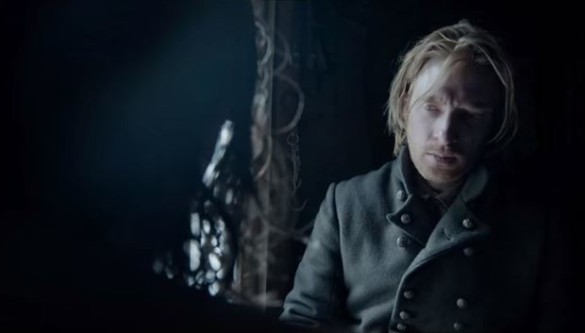
If you saw Birdman, it might be clear to you that Iñarittu carried over his affinity for stretched out camera shots, the most memorable being the bear attack scene, shot in one continuous take. The extended shot puts emphasis on the brutality of the assault: the audience does not get a break from it because the camera does not cut away. This effect is prominent throughout the movie, underscoring the barbarity that Glass faces, which only strengthens his character every time he is able to overcome it.
My only criticism was the importance given to the storyline regarding the Indians and the French— all I really wanted to see was Leo, so each scene that was solely about this conflict felt like an interruption. Though this B plot ultimately served a purpose, I think it was given too much screen time, ruining the pacing of an otherwise great film.

There are a lot of fantastic things in this movie. This movie is nearly flawless, impressing me in almost all aspects of film making (acting, cinematography, screenwriting, production design), with my only grievance being minor pacing issues. It is an emotional journey, with visceral effects that make it as realistic as possible. The Revenant can be considered nothing less than a successful follow up to Birdman for Alejandro G Iñarittu, one that could thrust him into Oscar glory for the second consecutive year, and finally give Leo that Oscar he deserves.
~Vig
8.5 out of 10
Much has been made of the great feat of endurance that was making Alejandro G. Inarritu’s The Revenant. And despite a comfy chair and a snack of Swedish, and firmly dead, fish coming out I felt that I could empathize somewhat with Leo and co.’s struggle. This sounds harsh but is not necessarily a criticism. Much like a long camping trip into the woods, The Revenant will be divine for some. But for others, The Revenant will be gorgeous, occasionally profound but at the end of the day all a bit much.
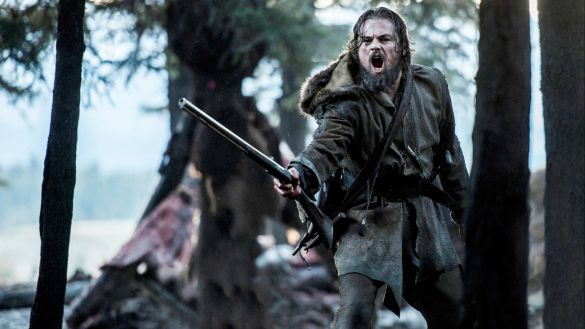
Even the first scene, an attack on the fur trappers’ camp by natives, goes on ever so slightly too long. It is a minor sin but portentous nevertheless. From that scene onwards, the movie is a breathless assault on the senses. DiCaprio’s character, the abandoned fur trapper Hugh Glass, suffers trial after trial at the hands of the brutal land and its inhabitants, emerging bloodied and panting from each. Watching DiCaprio endure the first few is entertaining but as the film enters its third hour, they become tiresome and, as the watcher becomes ever more desensitized to the violence, Inarittu seems determined to keep the crowd gasping through escalating gore.
One possible solution to the problem of length might have been to shorten the film to a more digestible 90 minutes. This is an interesting suggestion but fundamentally flawed. A film titled The Revenant, as infantile as this may sound, has to be an epic. Although its raging 156 minutes may turn some off, in so many other ways the pure mass of the film is the film’s greatest strength. One cannot please everyone when making a film as grand as Glass’ story necessitates, and Inarritu deserves kudos for the pure conviction he displayed in making this beast of a film.

And to be fair, there are some moments of repose. We are treated to occasional expository glimpses of burning camps and ethereal women on the wind. DiCaprio does well to imbue these scenes with emotion, even if at points one can almost hear the yearning for an Oscar in his breath.
On the more general topic of the acting in the film, it is all about the two men: Tom Hardy and DiCaprio. Both are such well-respected actors and in this film they earn their reputation with two great examples of physical acting. There is a strong stress on the physical there as both talk little and a decent portion of it is largely incomprehensible. In fact, DiCaprio’s most powerful line of the film, a laconic mutter about his son, is in the trailer. In the end, however, it hardly matters. DiCaprio and Hardy are both such immense presences on the screen, not only physically but emotionally too, that the dearth of dialogue becomes irrelevant.
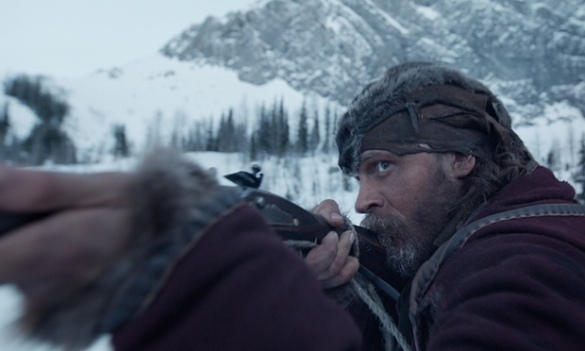
But as much as the film is really all about DiCaprio’s relentless hunt for those who forsook him, many will find that the most intriguing narrative to The Revenant is that of the Indians who weave in and out of the film’s forests and storyline. The film will certainly not be remembered for its portrayal of Indians and DiCaprio’s brief meeting with a wise healer/mentor at the darkest point of his journey is almost painfully cliché but the film’s portrayal of the plight of the displaced and disillusioned natives is nevertheless a thoroughly interesting piece of The Revenant’s epic puzzle.
In short, The Revenant may be one of the most divisive Best Picture frontrunners in recent history, and there’s a very good chance anyone who will enjoy it has already seen it. But if you like a good vista, and don’t mind a touch of blood, it’s a glorious ride.
~Nic




